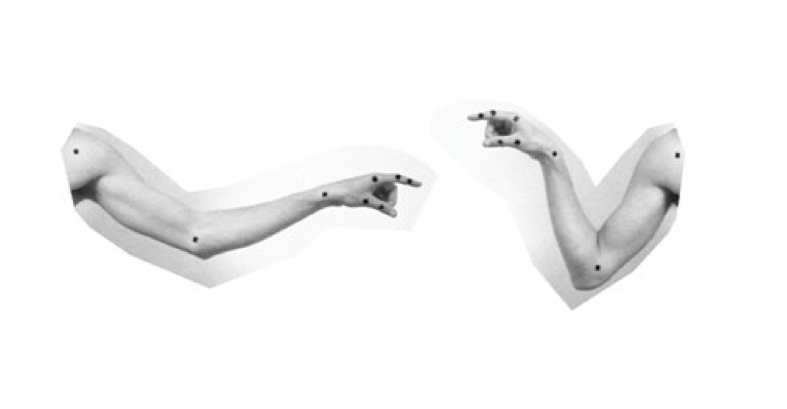
Production hands is a reflection on my visits to manufacturing facilities in China in 2008. I identified the distinct ability to withstand repetitive labour within the structure of the Fordist division of labour.
Man and machine are one. From the finger which pushes the button to the hand that pulls the lever, these body parts become part of a bio-machine. The rigid steel machine cannot operate without these flexible fleshy human parts. In this film I suggest the mechanics of the arm, and the repetition of these movements as machine-like.
Reflecting on China politically, I looked to different ideological positions on manufacture and the machine. Marx suggested that machines are not used to reduce the worker’s effort, rather to maximise their exploitation. He also wrote that machines are “mechanical-intellectual-social assemblages”.
Bio-mechanics in the context of Fordism is also bio-political as it denotes a rhythm and power over social and political life. When I visited China, it seemed that factory work was well respected and well paid (at least compared to farm work) – and yet this form of labour is part of a free market/capitalist system than a communist construction. Of course, this is China’s political paradox, and I felt that the worker is in the crux of this contradiction.
I see the manufacture of objects as the birth of capital – and the designer as an instrument in the machine of production from desires to actualities. Instead of making something physical, in this video I controlled all my own production, creating something counter-productive to remove myself from this system of capital. Ironically, a piece like this is also re-absorbed as (creative) capital itself. Therefore the action of the my arm is also an example of my work.
By presenting this work in China, I contrast the position of the designer creating capital, with the repetitive action of Chinese workers making objects; and the globalised notions of production in a modern world.